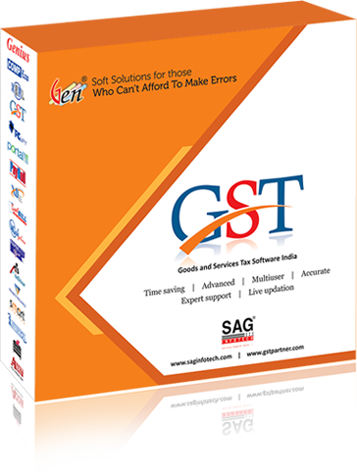A mutual fund is a kind of a professionally managed investment fund that pools fortune (money) from investors to purchase securities. As per recent updates, at the end of 2018, mutual fund capital worldwide was around $46.7 trillion. Which is enough to gain the attention of the new investor. It also fulfils the aim of investors which is definitely Capital Appreciation. The investment generates capital gains, and as per law it is “taxable”. This article is prepared to discuss “how mutual funds are taxed depending on their type and duration? and all the queries related to GST on mutual funds investment?”
Contents
Mutual Funds Holding Period and Taxation
An investor invests money or fortune with the sole purpose of wealth increment, this usually happens in the form of capital gains, interest, or dividends.
Mutual Fund Holding Period is a duration for which the investor holds his investment. In other words, it is a time duration in which an investor stays invested. It is required to determine the tax applicable to the investment.
Recommended: GST Effect on Stock Market, Stock Transfer & Share Trading
Types of Holding Period
There are just two types of Holding Period i.e. Short term and Long term holding periods.
Short Term Holding Period
If the holding period is less than one year or 12 months then this type of equity goes under Short term Investment. In the same period, the debt fund is considered as short-term if the holding period is less than 3 years or 36 months. Therefore, it is notable that short-term capital gains taxes apply to any income proliferate from securities for less than three years or a total of 36 months. high-yield savings accounts, treasury bills, 91-day bonds, etc. are some of the examples of short-term securities and holding periods.
Long Term Holding Period
Investment with 12 months or less holding period is considered in Short term Holding, so an investment having a holding period of more than 12 months come under Long Term Holding Period, However, if it is a debt fund, then the investment will be considered long-term if the holding period is equal to or more than 36 months, thus it will get enough time to determine the capital gain (or) loss on the investment, again it is based on taxes.
The table given below will shed light on the classification of holding periods of mutual funds:
| Types of Funds | Short-term securities | Long-term securities |
| Equity funds | < 12 months | ≥ 12 months |
| Balanced funds (equity-oriented) | < 12 months | ≥ 12 months |
| Balanced funds (debt-oriented) | < 36 months | ≥ 36 months |
| Debt funds | < 36 months | ≥ 36 months |
Note: Balanced funds come under equity tax only if it features more than 65% of equity exposure. If it is not, or is equal to debt instruments i.e., 50% equity and 50% debt, then it will consider under Debt taxation.
Also Read: GST on Health Insurance in India
Taxation on Mutual Funds
Tax-Saving Equity Funds
Equity Linked Savings Schemes or ELSS is the most beneficial tax-efficient tax-saving scheme under Sec 80C falling under the Income Tax Act, 1961’s provisions. ELSS funds invest in equity & equity-related securities.
These funds can help you save up to Rs. 46,800* in taxes annually. if you belong to a 30% Income Tax bracket and annually invest Rs. 1.5 lakh. ELLS is like any other mutual fund which invests in share but it comes with a three-year lock-in, which means the owner cannot sell their investment before three years from the date of purchase.
Non-Tax Saving Equity Funds
All the Long-term Capital Gains on these equity funds up to Rs 1 Lakh is tax-free but if the Long term capital gain gets raised above Rs 1 Lakh then it is taxable at the rate of 10% without the benefit of indexation.
To make things more clear here is an example, Shares worth Rs 100 is purchased by a person on 30th September 2019 and then sold on 31 December 2019 at Rs 120 to other people. On 31 January 2019, the Value of the Stock was Rs 110, so in this case, out of the capital gains of Rs 20, Rs 10 doesn’t come under any taxation but rest Rs 10 is taxable without indexation as Capital gains at 10%. Additionally, there is a 15% tax applicable upon the redemption of units before the completion of 12 months which comes under STT.
Debt Funds
A Debt Fund is a mutual fund that invests in fixed income securities and short, medium and long term bonds. It is preferred by investors who are not willing to invest in a highly volatile equity market. After indexing long term capital gains on these mutual funds are taxable at the rate of 20%. Indexation is a method that takes care of capital gain from the time of purchase to the sale of the units.
Balanced Funds
Balanced Funds get treated as non-tax saving equity funds. Balanced Funds are a combination of a stock component, a bond component and occasionally a money market component in a single portfolio. These are equity-oriented hybrid funds that invest at least 65% of their assets towards equities.
Also Read: Impact of GST on Insurance Premium and Bank Charges
SIPs
SIP is an acronym for a systematic investment plan, it is offered by AMCs to investors to invest a small amount of money in various mutual funds across fund houses. They can invest a fixed amount on a daily, weekly, fortnightly, monthly, or quarterly basis.
Each SIP will be considered as a new investment which definitely attracts taxes on their gain separately. So it is clear that the gains from SIPs are taxable depends on their type and holding period.
To understand it better let’s take an example, An investor begins a SIP of RS 20,000 on a monthly basis in equity for 12 months. Each installment/ Investment/ SIP will be considered as New Investment, thus if he decided to redeem complete fund means his investments with gains, Only the gains earned on the first SIP would be tax-free because it completed one year but all other gains will not be tax-free. So all the remaining gains would be subject to short-term capital gains tax.
Securities Transaction Tax (STT)
This one is somehow different from all the above, because it is levied only if you decided to sell your equity fund unit or balanced fund. An STT of 0.001% will be applied by the government (Ministry of Finance) when an individual decided to sell their equity fund unit or balanced fund. It is also notable that there is no Securities Transaction Tax on the sale of debt fund units.
Since the interest earned on Mutual Funds is neither a service nor a product, it is not eligible for Goods & Services Tax (GST). Only income tax, as per specific laws, is applicable to the mutual fund interest.
GST Impact on Mutual Funds
If you are wondering if GST in any way affects your mutual fund investments, the answer is yes, but in a very small amount.
Increase in service tax (GST)
After the launch of GST, the service tax has been replaced by GST and the tax rate has been increased from the earlier 15% to 18%, which is expected to slightly increase the prices of mutual funds and may, therefore, affect the returns.
Must Read: How Mutual Fund Investors Impacted From GST Levy On Exit Load
Service tax is paid by mutual funds distributors or agents who provide these services to investors. Earlier, they were paying a 15% service tax on such services, which has now been increased to 18%. The increase in tax liability may affect the earning capability of MF distributors.
However, Mutual funds distributors & companies making less than Rs 20 lakh per year are exempted from paying GST on their services.
Conclusion:
The concept in the mutual fund is that the longer you hold onto your mutual fund unit, the more tax efficient they become. The long term investment is always a beneficial option because the taxation on long-term gains is lower compared to tax on short-term gains.
For fund and tax-related work, you can use Gen GST software to make things easier for you.





